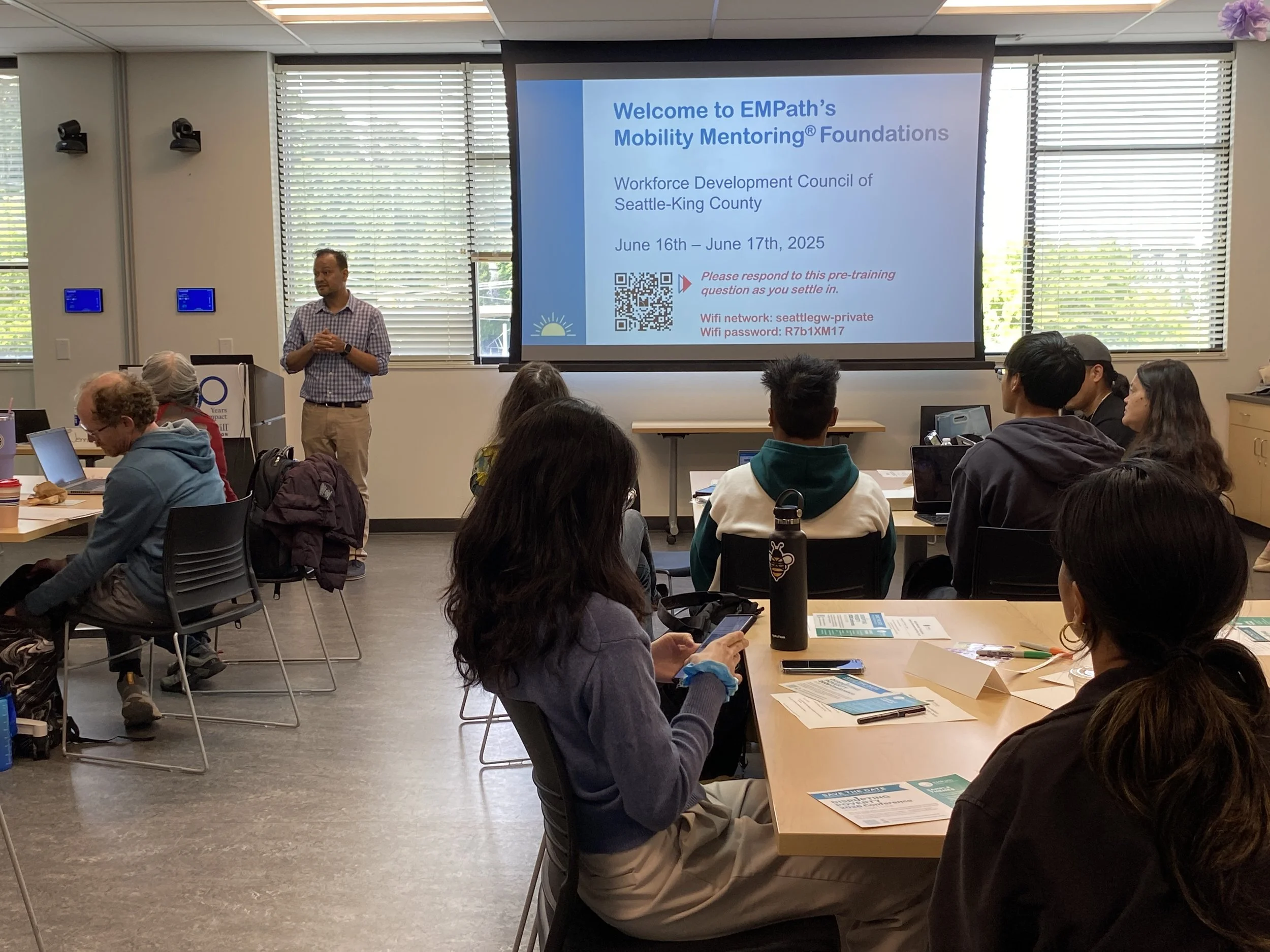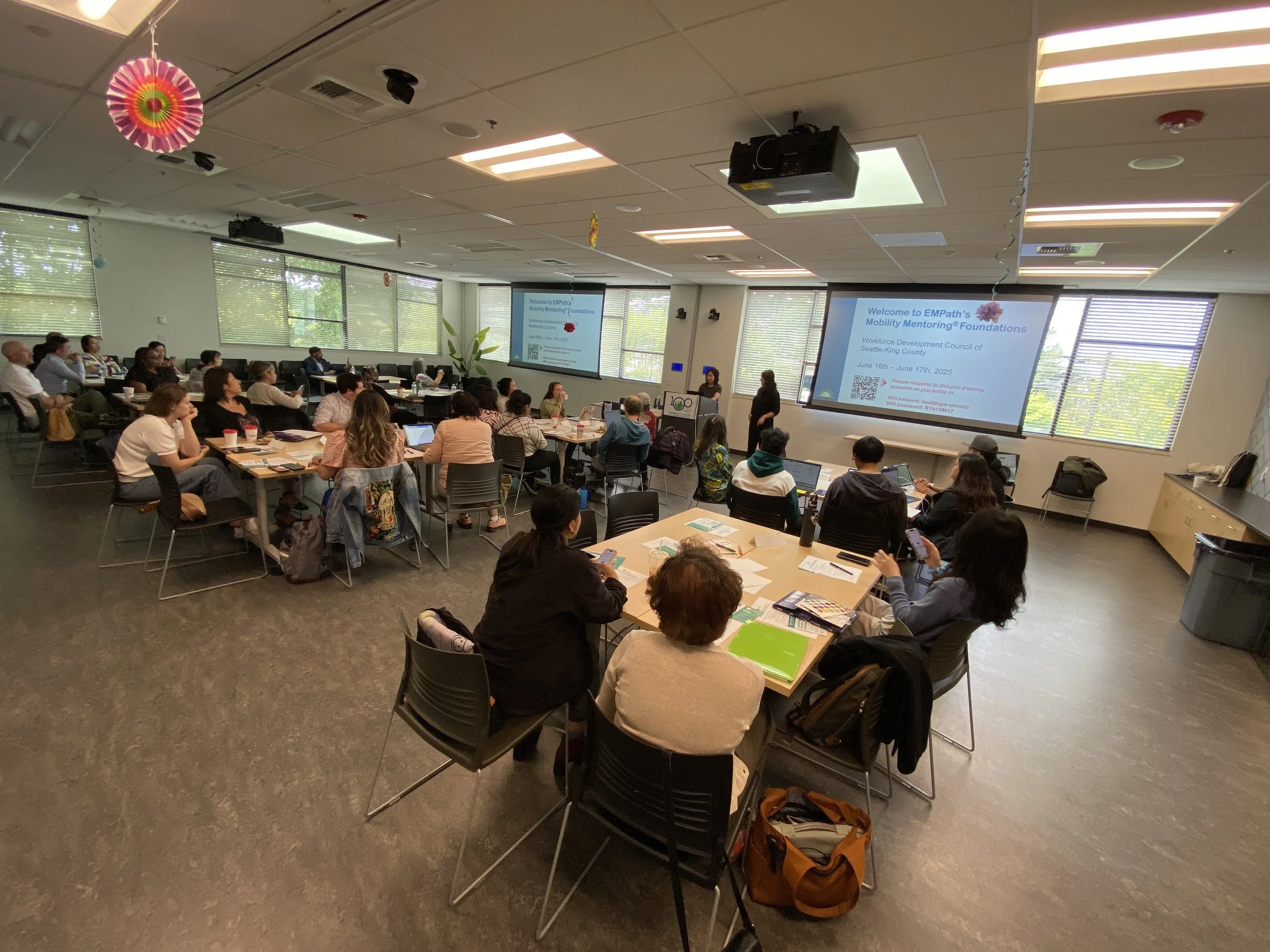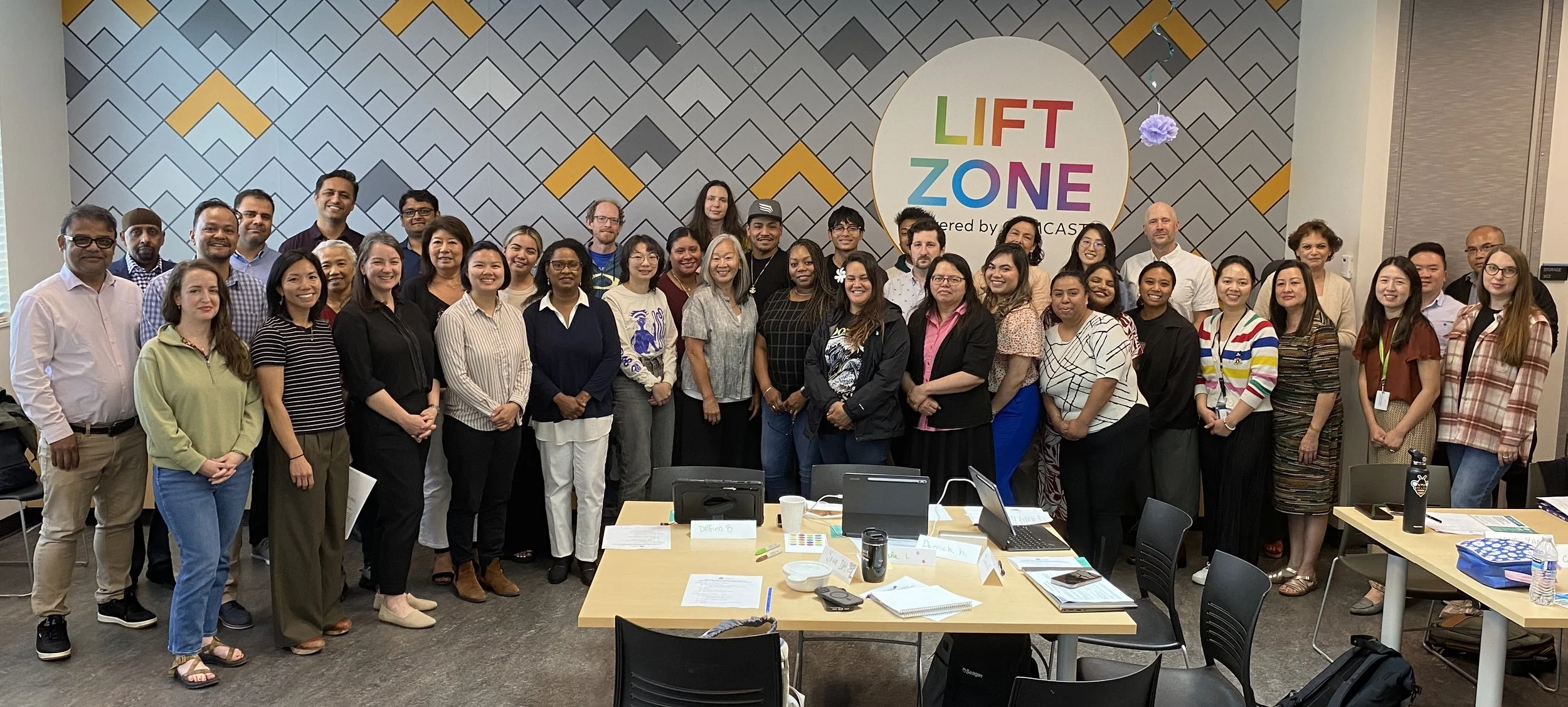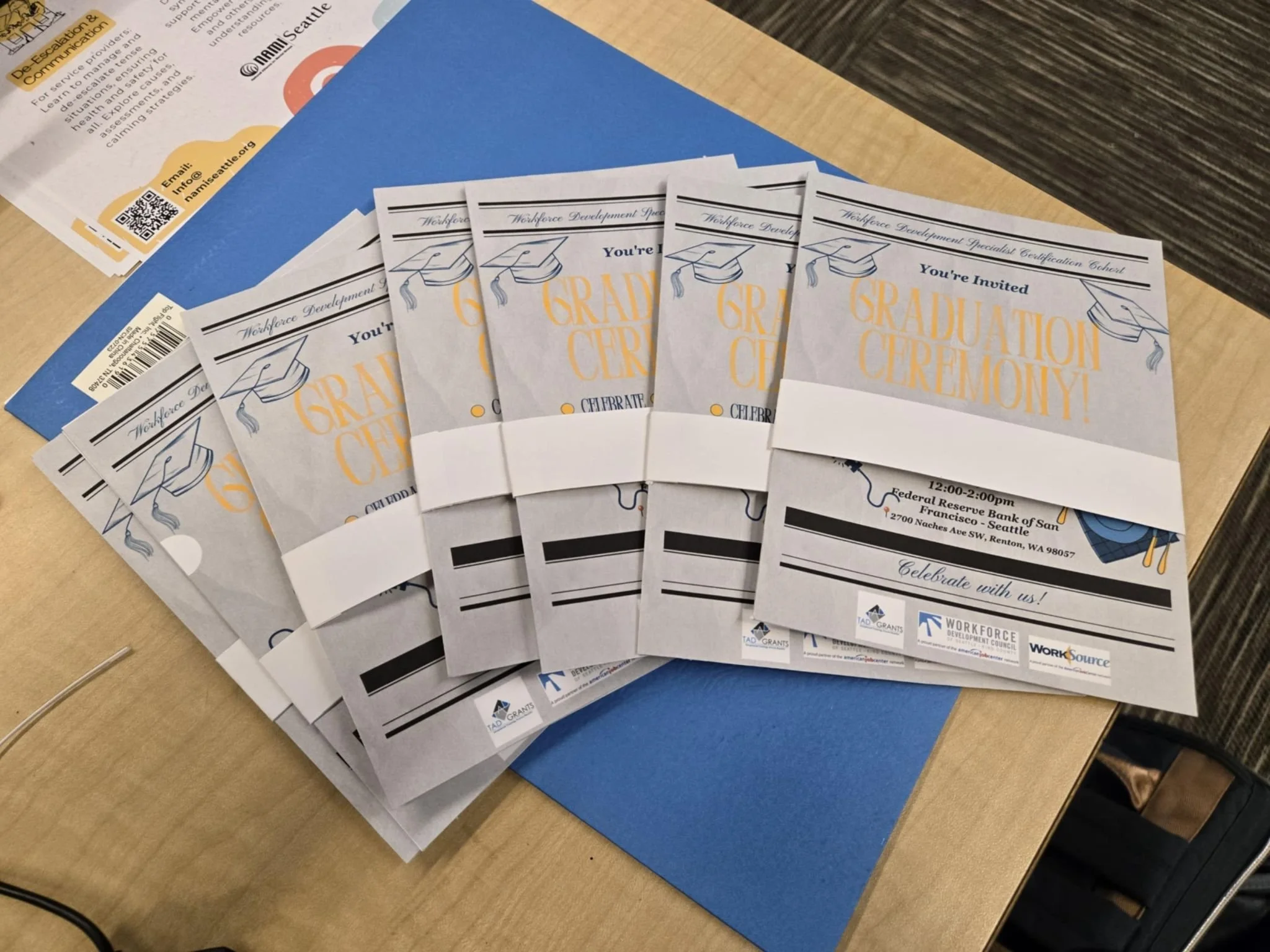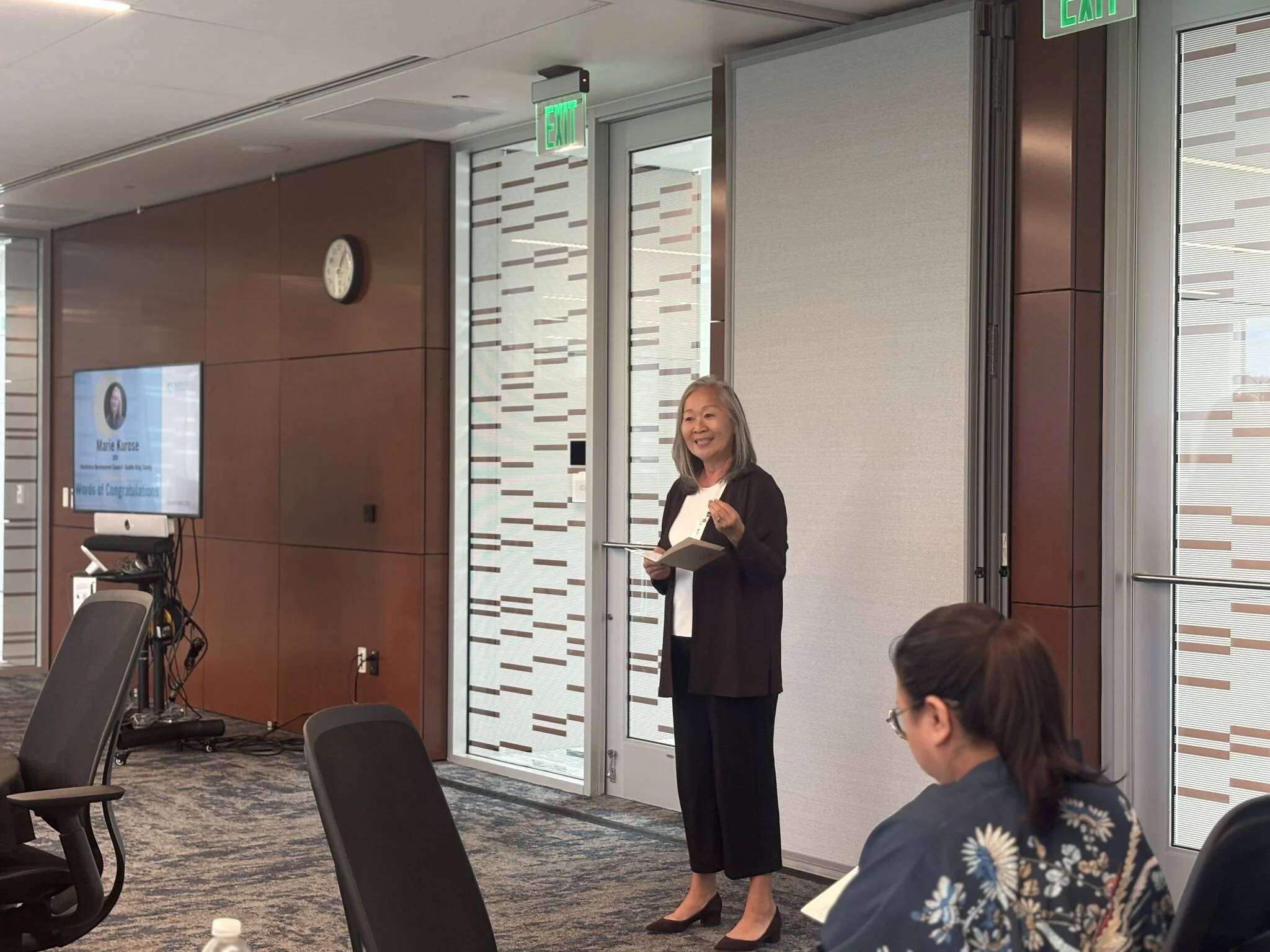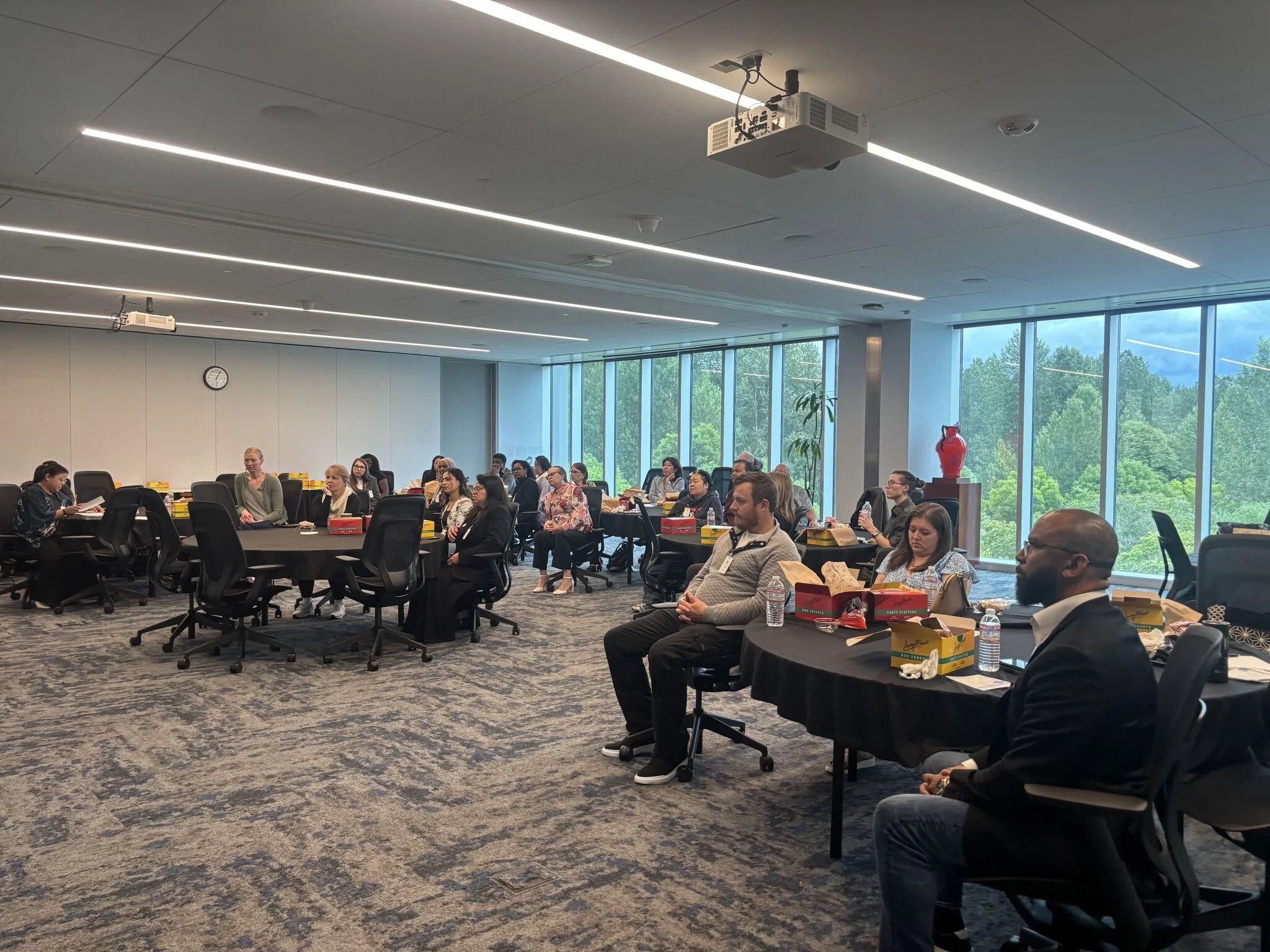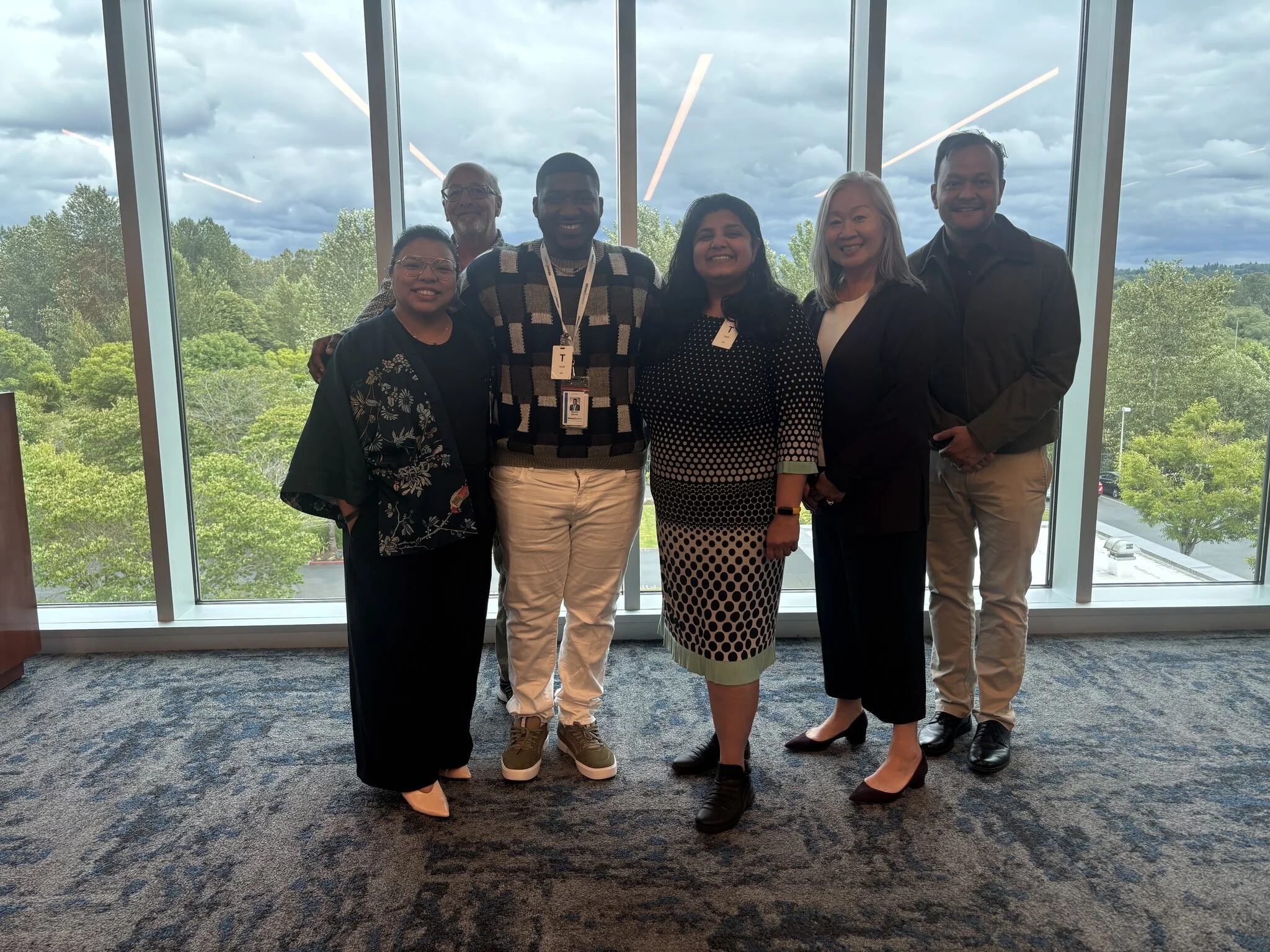Where We’ve Been, and Where We’re Headed: A Brief Look Back at Program Year 2024-2025
By Marie Kurose, CEO, Workforce Development Council of Seattle-King County
As we close out the 2024 program year, we want to take a moment, with deep pride and gratitude, to reflect on the meaningful progress we’ve made together.
In a year marked by both challenge and change, we remained grounded in our values: advancing equity, investing in community-led solutions, fostering cross-sector collaboration, and embracing innovation.
This year, our collective impact was nationally recognized with the 2025 WIOA Trailblazer Award, an honor that reflects our shared commitment to building a workforce system that truly works for everyone.
While we celebrate the past year’s progress, we know the work is far from over. Building an equitable workforce system requires sustained investment and strong partnerships, especially as ongoing federal and state funding cuts continue to place real pressure on our system and the communities we serve.
Doubling Down on Our Role as a Backbone Organization
Service providers participating in a design sprint to build a more human-centered client intake system.
The WDC has continued to embrace our role as a backbone organization, strengthening the foundation of WIOA while also advancing forward-looking initiatives like the Economic Security for All (EcSA) program. These models have enabled us to scale practical, equity-driven solutions that respond to the changing needs of our communities and regional economy.
These equity-centered strategies aren’t just theoretical; they’re being put into action across sectors and communities. From transforming job quality in frontline industries to investing in the people who power our workforce system, we’re advancing a comprehensive approach to economic mobility and resilience.
Investing in Language Access
One example is our sustained investment in language access. Since launching free interpretation services at 39 community connection sites in 2023, usage has grown to over 68,000 minutes across 44 languages at 17 locations. As immigrant and refugee communities face growing hostility, these services are more essential than ever to ensure equitable access to workforce supports.
Supporting Small Businesses and Workers
Over the past year, the WDC:
Awarded $1.1 million in grants to 123 small businesses through the Community Reinvestment Project.
Distributed more than $4.1 million to customers, including $3.5 million in Career Accelerator Incentive payments
Helped over 350 King County residents build financial stability
Launching the Sound Jobs Initiative
In the hospitality sector, we launched Sound Jobs, a new initiative to improve economic mobility and job quality for frontline service workers. Supported by a $3 million grant from the U.S. Department of Labor, this effort brings together:
Braided Rivers, FareStart, WeTrain Washington–UFCW 3000, Seattle Good Business Network, and UNITE HERE! Local 8.
Together, we are strengthening workplace well-being and career pathways across the hospitality sector.
Childcare as a Workforce Issue
We also recognize that workforce infrastructure includes care infrastructure. One key example is the childcare sector, which remains underfunded and overstretched. To address this, the WDC partnered with the Imagine Institute to support licensed family home childcare providers in high-need communities.
46 providers received 4,291 hours of paid substitute teacher time
Supports included PTO, professional development, and vacation
All providers served communities identified as childcare deserts or facing elevated poverty and equity gaps
These supports reduced burnout and turnover while advancing job quality in a critical sector for working families.
Developing Workforce Professionals
This summer, we celebrated the latest graduation of our Workforce Practitioners Academy, with more than 30 staff from 13 community-based organizations completing the program. Since its launch in fall 2022:
100+ frontline staff have accessed free training, certification, and peer learning
The Academy supports career growth and long-term economic mobility within our system
System Capacity-Building Through Partnership and Training
We’ve also strengthened our system through targeted training and capacity-building:
Partnered with the Federal Reserve Bank of Atlanta and the LEAP Fund to introduce tools that address the benefits cliff
Hosted a two-day Mobility Mentoring® training with EMPath to equip staff with a proven coaching model for long-term economic mobility
And in March, we convened WDC staff and service providers for a full-day Results-Based Accountability™ (RBA) training with Clear Impact.
This framework helps organizations:
Start with clear outcomes (“ends”) and work backward to measurable strategies (“means”)
Focus on real, measurable improvements in people’s lives
Align performance measurement with the values of equity and continuous learning
The RBA framework is already shaping how we implement and evaluate programs in the new program year that began July 1, 2025.
Looking Ahead
As we look ahead, we remain committed to building an inclusive, resilient, and opportunity-rich workforce system, one that meets people where they are, adapts to their needs, and invests in their long-term success.
Explore Our Year in Review
We’ve captured even more of our milestones, innovations, and community investments. Check out our PY24 Year in Review to see what we got up to:








